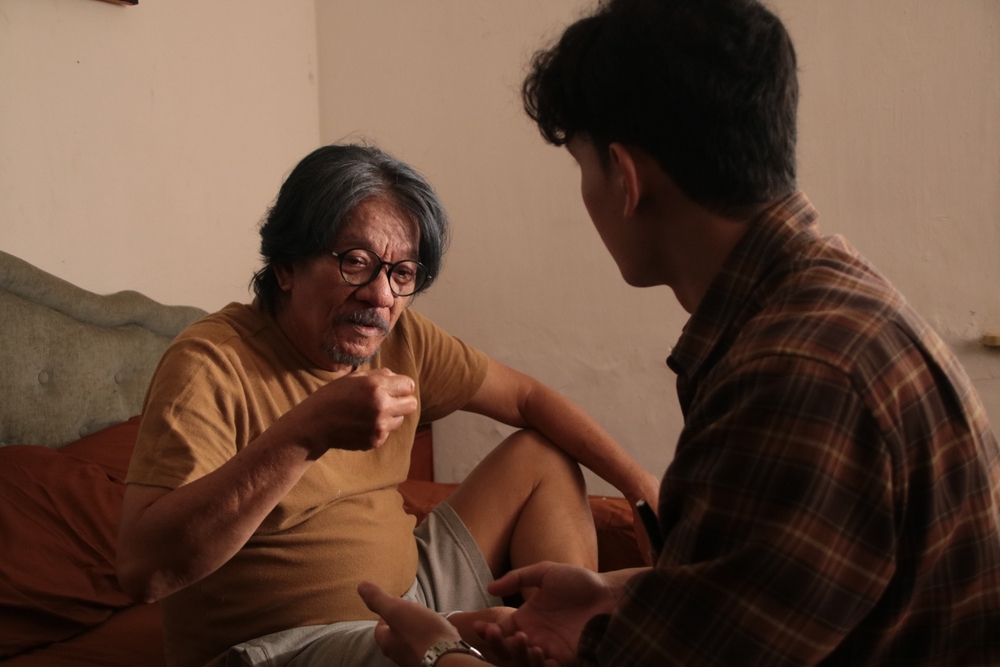Penis. Vagina. Vibrator. Sex toy. How did you react when you read these words? Were you surprised? Did you laugh a little? Maybe you felt slightly offended? Sexuality and its related subjects have been taboo topics in the Philippines for hundreds of years thanks to its complicated history with conservatism.
The Philippine Reproductive Health Law (R.A. 10354), or RH Law, was meant to alleviate that issue by mandating free access to modern contraceptives, age-appropriate sex education, and post-abortion care.
However, it hasn’t been very successful. Despite passing into law in 2012, reproductive health continues to be a topic that isn’t openly discussed. This article aims to spotlight the state of reproductive health in the country to hopefully create a more informed and open dialogue about these crucial issues.
Why is Sex a Taboo Topic in the Philippines?

Sex is a taboo topic in the Philippines primarily because of the conservative nature of the culture and the country’s strong devotion to Christianity. This mindset has created an environment where discussions about sexual health and sexuality are often avoided or considered inappropriate.
The discussion of reproductive rights also faces significant resistance from influential religious groups. The official stance of the Catholic Bishops Conference of the Philippines is to denounce premarital sex and discourage the use of contraceptives. Considering that 88% of Filipinos are Christian, they’re very influential.
The stigma around these topics stems from a combination of religious teachings that emphasize chastity and the traditional view that sex should be a private matter primarily for procreation.
In general, topics become taboo when they challenge the prevailing social norms, beliefs, or societal values. They can arise from cultural, religious, and moral grounds. Certain subjects are deemed inappropriate for public discussion due to their perceived potential to disrupt social harmony. In the Philippines, this has extended to mental health, divorce, and LGBTQ+ issues.
Consequently, open conversations about contraception, safe sex practices, and sexual health education are rare, leading to widespread misinformation and limited access and awareness. However, a growing counterculture is emerging, evidenced by the increasing acceptance of sex toy stores like Pink Bunny and related movements both online and offline.
What Are the Reproductive Health Issues in the Philippines?
The Philippines faces numerous reproductive health issues that continue to impact its population despite legislative efforts to address them. Here are four of the most pressing:
1. More than 10 years since the passing of the RH Law, its implementation remains lacking
Enacted in 2012, the RH Law aimed to provide universal access to reproductive health and family planning services, maternal healthcare, and reproductive health and sexuality education for the youth. Over a decade later, its goals have only been partially met.
The law aimed to reduce maternal deaths, teen pregnancies, and sexually transmitted infections (STIs). There have been some successes: maternal death rates improved from 104 to 78 per 100,000 live births between 2012 and 2020.
Teen pregnancy rates also trended lower since the bill’s launch, although there was a significant 35% increase between 2021 and 2022.
Unfortunately, the law has been less successful in decreasing STI transmission. In the past decade, the Philippines has had the fastest-growing rates of the human immunodeficiency virus (HIV) and acquired immunodeficiency syndrome (AIDS)-related deaths in the Western Pacific region.
While the RH Law has seen some success, it is clear that a renewed effort is required to address its shortcomings and fully realize its objectives.
2. Sex education for the youth is still taboo
Although the RH Law includes provisions for age-appropriate sex education, its implementation has been patchy at best. The curriculum is designed for students aged 10 to 19 but has been opposed by conservative groups and churches before and after the law’s passing. This resistance results in inconsistent delivery and a lack of comprehensive information.
There’s an urgent need to revisit sex education due to the previously mentioned surging teen pregnancy and teen STI rates. In 2021, 25% of reported HIV cases were among those aged 15 to 20.
In spite of the church’s insistence that sex education promotes promiscuity, the fact is that children and young adults are already having sex. However, they’re approaching it believing in misinformation and without proper preparations because of the lack of sex education.
3. Contraception is seen as unnatural

Cultural conservatism often frames contraception as unnatural or morally wrong because it ascribes to the outdated idea that sex should only be done within marriage and for procreation.
The RH Law allocates budgets for free contraception through public health clinics, but this practice is not widely known. Research shows that modern contraceptive use only increased by 2% from 2013 to 2017. Many Filipinos still believe that their only option is to buy contraceptives from convenience and adult toy stores.
The lack of access is also contributing to the previously mentioned HIV and AIDS epidemic. According to the Asia Pacific Coalition on Male Sexual Health, over 50% of men who have sex with men don’t have access to condoms.
Barrier contraceptives are the least expensive and invasive methods to prevent pregnancy and STI transmission. When used correctly, they have a 98% success rate at preventing pregnancy, sexually transmitted diseases (STDs), and infections. But they can only work if people can access them and know how and when to use them.
4. STIs, STDs, HIV, and AIDS myths need to be debunked properly
The lack of comprehensive sex education has led to the persistence of myths and misinformation about sexually transmitted infections and diseases. Common myths include the belief that HIV can be transmitted through casual contact or that it only affects men who have sex with men.
These misconceptions are not only ignorant, but they can also be dangerous. Straight people may gain a false sense of security and forego contraceptive use. Additionally, people with HIV may choose to hide and not get tested because of the social stigma related. HIV is an entirely treatable condition, like hypertension or diabetes.
Besides HIV, other STIs require accurate information and open discussions to reduce the stigma and encourage routine testing.
How to Talk About Reproductive Health in the Philippines
Discussing reproductive health in the Philippines requires a thoughtful approach due to the cultural and religious sensitivities involved, but that doesn’t mean you shouldn’t try. Here are ways to address these topics effectively to grow a more open dialogue:
1. Educate with cultural sensitivity
When discussing reproductive health, it’s crucial to respect cultural and religious values. The church and positive discussion efforts don’t necessarily have to conflict. Highlight common goals, such as the well-being and dignity of individuals, to find common ground.
Frame discussions around health and safety rather than morality to create a more receptive audience.
2. Promote comprehensive sex education
Healthy discussions about sex will never happen if not everyone is clear about the facts. Comprehensive sex education provides accurate information about reproductive health.
You can advocate for the implementation of effective sex education programs in both public and private schools, emphasizing the importance of understanding one’s body, practicing safe sex, and respecting consent. Using data and success stories from other countries, you can illustrate how well-rounded sex education can significantly reduce teen pregnancies and STIs.
3. Collaborate with others
If you choose to take up this advocacy, you aren’t alone. Healthcare providers and advocacy groups like the Pambansang Kongreso ng Kababaihan sa Kanayunan (PKKK) and LoveYourself have spent years working toward alleviating these issues. You can learn from their examples on how to effectively approach such matters.
You can also partner with healthcare providers to gain credibility and ensure accurate, science-based information.
4. Encourage open family discussions
Change starts at the smallest community unit: your family. Open communication within families about reproductive health can significantly reduce stigma. Parents should encourage their kids to talk about these topics in an age-appropriate manner, creating a safe space for questions and discussions.
However, parents also need resources and guidance on approaching these conversations. Ideally, the schools would communicate their sex education lessons to the parents so they can supplement the information at home.
5. Use media and technology
Nowadays, online is the preferred platform for younger Filipinos. Proper use of media and technology can spread awareness and educate the public about reproductive health. It also works to destigmatize these topics as people can more visibly see open and healthy discussions.
Social media campaigns, online forums, and educational videos can reach a broad audience and encourage engagement because of the anonymity. Highlight positive stories and testimonials to reduce stigma and encourage people to seek information and support.
Sex: More than Just Pleasure, More than Just Reproduction
Sexuality isn’t just about pleasure, nor is it solely about procreation. It’s one of the most human experiences we all share. Open communication about sex and reproductive health is crucial for approaching sexuality safely and confidently.
Despite the measures of the RH Law, there’s still a need for concerted efforts to change the negative perceptions surrounding these topics. Honest discussions help break down barriers of stigma and misinformation, promoting everyone’s happiness, health, and safety.
Adult stores like Pink Bunny are helping to flip this narrative by combining sex toys and sexual health. We offer a broad range of adult toys, from sex toys for single individuals to those designed for couples, including anal toys and more.
Embrace and enjoy your sexual health with Pink Bunny!





